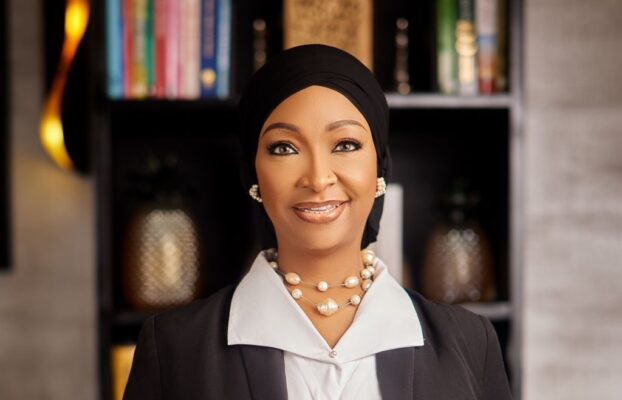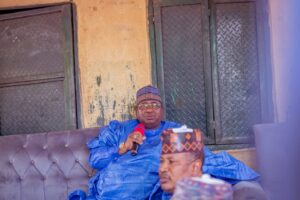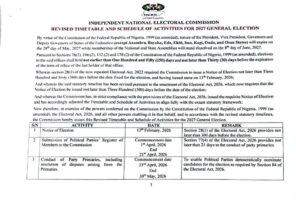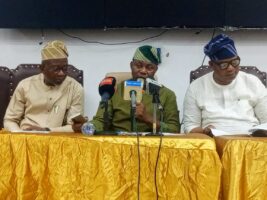The Minister of Art, Culture, Tourism and the Creative Economy, Hannatu Musa Musawa, during the 5th World Tourism Day, has championed commitment to sustainable growth with the launch of Nigeria’s Sustainable Tourism Transformation Agenda to renew its pledge to position tourism as a powerful driver of inclusive growth and national renewal.
Read Also
- Inbound Tourism Emerges as Nigeria’s Pathway to Global Visibility, Unity, Prosperity - Minister
- Ministry of Art, Sports Commission partner to Build Mega Sports Cultural City
- Nigeria, Switzerland Begin Talks on Artifact Repatriation, Cultural Cooperation
- Nigeria to Showcase Designers at Saudi International Handicrafts Week 2025
This was disclosed in a statement signed by the Technical Assistant, Media and Communications to the Minister of Arts, Culture, Creative Economy, and Tourism, Sandra Njoku Samuel, made available to TVC on Sunday.
The statement reads, “Nigeria has joined the rest of the world in celebrating the 45th World Tourism Day, renewing its commitment to position tourism as a driver of inclusive growth, national renewal, and global sustainability. The event, hosted by the Federal Ministry of Art, Culture, Tourism and the Creative Economy (FMACTCE) under the leadership of Honourable Minister Barrister Hannatu Musa Musawa, took place at the China Cultural Centre, Abuja, in line with this year’s United Nations theme: “Tourism and Sustainable Transformation.”
According to the statement, the Minister, who was represented by the Permanent Secretary Dr Mukhtar Yawale Muhammad (MFR), unveiled the Nigeria Sustainable Tourism Transformation Agenda (NSITA), a four-pillar framework designed to reposition tourism as a catalyst for national prosperity.
Nigeria’s Sustainable Tourism Transformation Agenda
The agenda focuses on:
•Policy & Infrastructure – including a revised National Tourism Policy and “Green Nigeria” eco-certification.
•Community-Based Tourism – supported by a Tourism Development Fund to strengthen local businesses and communities.
•Conservation & Digital Innovation – through heritage digitisation and smart-park technologies to safeguard biodiversity.
•Marketing & Branding – empowering young digital storytellers to project Nigeria on the global stage.
“The time for sustainable transformation is now. Together, we will ensure Nigeria writes a leading chapter in global tourism,” the Minister stated.
The statement further disclosed, 42 students from Yakubu Gowon University, Abuja, have received Ministry scholarships. Acting Vice Chancellor, Professor Mathew Adamu, praised the initiative and pledged the University’s support in producing globally competitive tourism professionals.
Guest speaker A.M. Sheriff, National Vice President of the Institute for Tourism Professionals of Nigeria, emphasised tourism’s role in nation-building, job creation, and peace.
Yang Jianxing, Cultural Counsellor of the Chinese Embassy, reaffirmed China–Nigeria collaboration ahead of the 55th anniversary of diplomatic relations in 2026, promising continued support for Nigeria’s tourism development.
Dr Edwin Enenta, representing the NIHOTOUR Director-General, stressed the importance of green skills training, youth empowerment, and digital certification to build a globally competitive workforce.
Senator (Prince) Pam Mwadkon Dachungyang, Chairman of the Senate Committee on Tourism, applauded the Ministry’s community-driven approach that promotes local empowerment and heritage preservation.
The event featured cultural displays, essay awards, and goodwill messages from stakeholders in government, academia, and industry, all reinforcing tourism’s role in unity, sustainability, and prosperity.
In her closing message, the Honourable Minister urged nationwide collaboration, saying, “Tourism is not just about destinations, it is about destinies. Every journey should create jobs, every attraction must protect heritage, and every visitor should leave with a story of sustainability and hope.”
The commemoration aligned with President Bola Ahmed Tinubu’s Renewed Hope Agenda, reaffirming tourism as a pillar of economic transformation, social inclusion, and global recognition.





